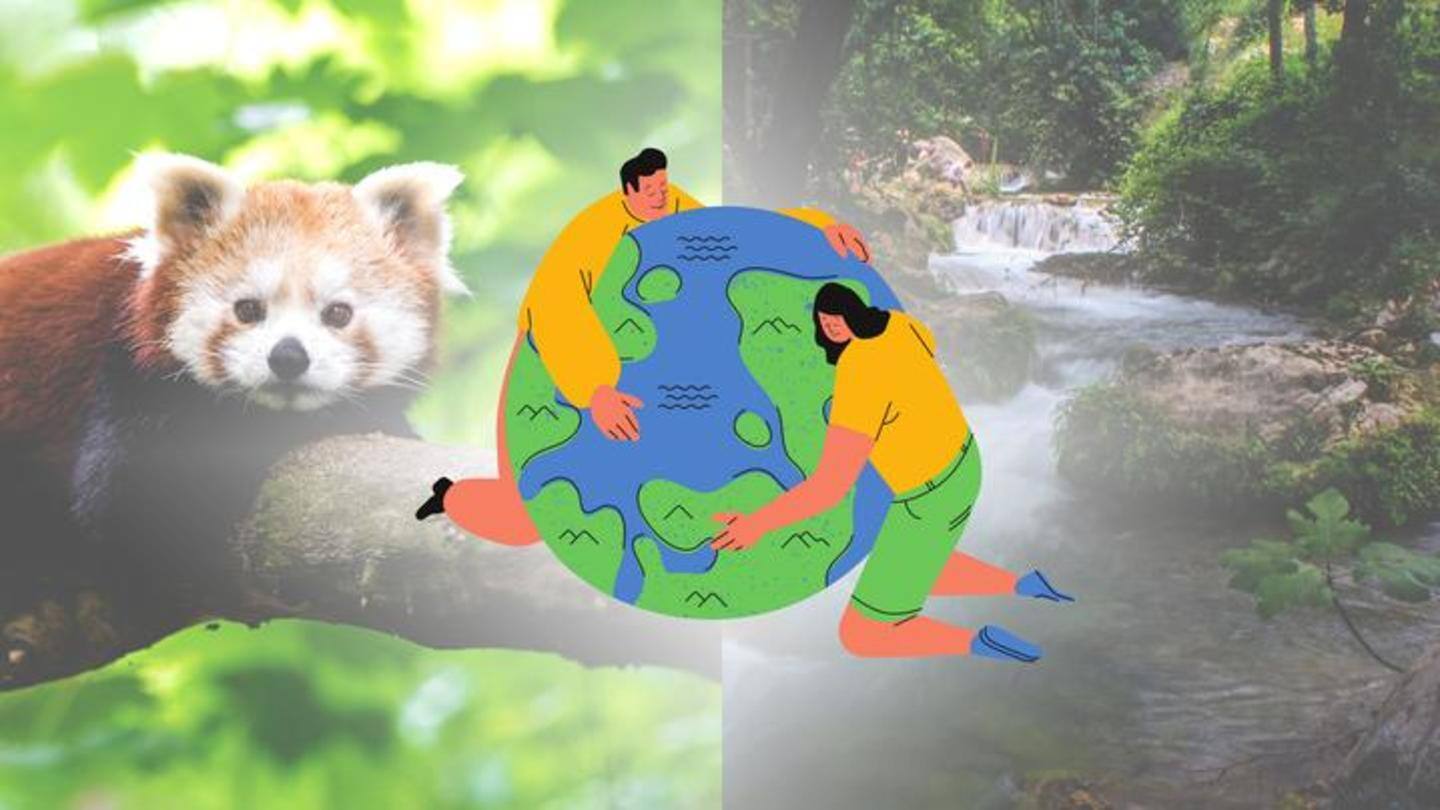
Can legal rights for animals, trees, rivers save the environment?
What's the story
In the face of surging environmental crises, a team of experts has suggested that granting legal rights to non-human entities such as animals, plants, and rivers might provide a solution to mitigate the effects of climate change and loss of biodiversity.
Environmentalists and authors of a report titled 'Law in the Emerging Bio Age' propose an establishment of a rigid legal framework.
Context
Why does this story matter?
While some of us go great lengths to safeguard the ecosystem, others are unruffled by climate change.
Glaciers are melting rapidly, rainforests are disappearing, greenhouse gases are at an all-time high, and increasing ocean temperatures are causing habitat loss of aquatic species.
In this backdrop, some experts have proposed the idea of giving legal rights to animals, rivers, and plants to tackle climate breakdown.
Road ahead
Experts see rise in conflicts between natural systems and humans
The Law Society in the UK seeks to explore the progressive relationship between humans and living systems in the current bio age with "new opportunities and risks that demand oversight and new regulations."
In the future, the experts see a rise in "different contractual obligations, new alliances and conflicts, as the rights of different human communities and natural systems are challenged."
Legal lines
'Law will help establish accountability and responsibility for human actions'
"We aren't wise enough to manage all of these capabilities and to manage the ripple effects of decisions we make about our relationship with the living environment," said Dr. Wendy Schultz, a co-author of the report.
"Part of the issue is embedding some sort of framework for accountability and responsibility for the consequences of these things we do, and that's where law comes in."
Change in mindset
'Granting personhood rights to non-human entities can be instrumental'
The authors of the report support the view where legal rights to non-human entities were granted under certain socialist governments, influenced by indigenous beliefs.
By essentially granting "personhood rights to the spirit of the river, the spirit of the trees or the spirit of the elephant, you're talking about enshrining a kind of neo-pantheism into 21st-century legal frameworks," added Schultz.
Precedents
Bolivia and Ecuador have already done the unthinkable
It has been over a decade since Bolivia and Ecuador passed laws that give rights to the natural world. In Bolivia, the Law of Mother Earth grants all nature equal rights to humans.
Ecuador's law says that "Natural communities and ecosystems possess the unalienable right to exist, flourish and evolve within Ecuador" and all Ecuadorian governments, communities, and individuals will enforce those rights.